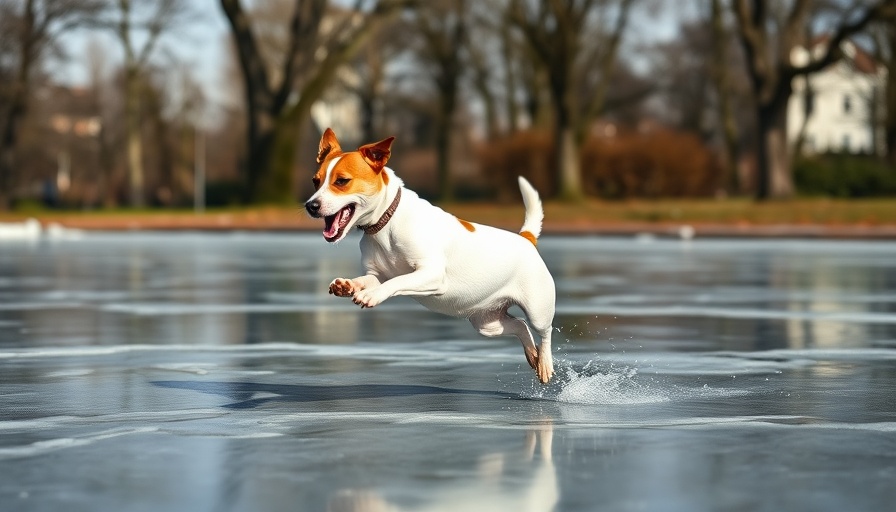
Ensure Pet Safety as Seasons Shift: Key Considerations
As spring unfolds, pet owners must adjust to the changing environment and its potential impacts on their furry friends. The spring thaw can bring hidden hazards, like icy ponds and streams—seemingly inviting to our pets but fraught with danger. This season not only revitalizes nature but also calls for an increased awareness of our pets' behaviors and well-being as they venture outside to explore.
Vigilance Against Seasonal Hazards
Springtime means more outdoor activity for both pets and their owners. However, as ice melts in waterways, pets can easily forget previous dangers. It's essential to supervise pets near these thawing areas. Similarly, in summer, the risk of overheating becomes critical, especially for breeds like bulldogs or pugs that struggle with heat regulation.
How to Protect Their Paws and More
With spring rains come mud and the risk of paws getting damaged from salt leftover from winter. After walks, it’s wise to wash off any residue to prevent irritation to their pads. Additionally, staying alert to the presence of puddles is important, as these may contain harmful substances that pets are tempted to drink.
Be Mindful of Allergens
As the snow melts and the earth begins to bloom, the risk of allergies for pets escalates. Seasonal pollen can trigger reactions in pets, leading to symptoms such as itching or sneezing. Keep watch for these signs and consult with your veterinarian for effective treatments. Addressing allergies proactively can lead to a more comfortable spring for your pet.
Spring Cleaning: An Annual Necessity
One of the less glamorous yet vital tasks for pet owners during this transition is the cleanup of accumulated waste from the winter months. This "Easter Egg hunt" for droppings, while unpleasant, helps maintain a clean and safe environment for both pets and humans to enjoy.
Routine Veterinary Care: A Must for Seasonal Adjustment
Routine veterinary visits are essential, particularly as seasons change. These appointments help to ensure vaccinations are up-to-date and that pets are protected against parasites that are more prevalent in warm weather. Keeping on top of preventative care can help avoid many of the issues that arise as the seasons shift.
Practical Tips to Keep Pets Healthy Year-Round
Regardless of the season, pet wellness can be supported through various actions. Regular grooming helps prevent matting and ensures proper skin health, while proper hydration is crucial year-round. Offering fresh water is especially important during hot months to prevent dehydration.
Additionally, as outdoor playtime increases, maintain a shaded area and limit vigorous exercise during the hottest parts of the day. By combining awareness, diligence, and a proactive approach, pet owners can ensure their animals thrive through every seasonal transition.
 Add Row
Add Row  Add
Add 




 Add Row
Add Row  Add
Add 

Write A Comment